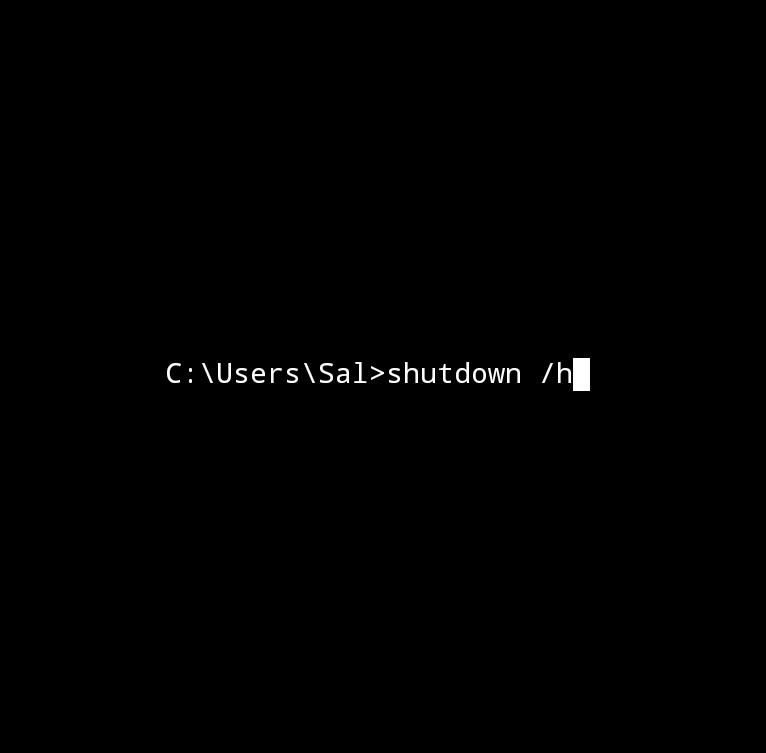I have an HP Stream 11 that I want to use for word processing and some light web browsing - I’m a writer and it’s a lightweight laptop to bring to the library or coffee shop to write on. Right now it’s got Windows and it’s unusable due to lack of hard drive space for updates. Someone had luck with Xubuntu, but it’s been a few years and it seems like Xubuntu is no longer trying to be a lightweight distro for use cases like this.
My experience with Linux is very limited - I played around with Peppermint Linux a bit back when it was a Lubuntu fork and I used Ubuntu on the lab computers in college. I can follow instructions to make a live boot and I can do an apt-get (so something Debian-based might be best for compatibility and familiarity) but I mostly have no idea what I’m doing, lol. I used to do DOS gaming as a kid so having to do the occasional thing via command line isn’t going to scare me off but I’m not going to pretend to have knowledge I don’t. I’m probably going to go with Mint on my gaming laptop next year but I suspect it’s not the best choice for my blue bezeled potato (although I might try it anyway).
Debian + xfce.
Devuan + xfce.
Devuan
Just no. Systemd can get more efficient than running hundreds of poorly integrated scripts and daemons to have a working system.
Note: this comment is long, because it is important and the idea that “systemd is always better, no matter the situation” is absolutely dangerous for the entire FOSS ecosystem.
Systemd can get more efficient than running hundreds of poorly integrated scripts
In theory yes. In practice, systemd is a huge monolithic single-point-of-failure system, with several bottlenecks and reinventing-the-wheel galore. And openrc is a far cry from “hundreds of poorly integrated scripts”.
I think it is crucial we stop having dogmatic “arguments” with Argumentum ad populum or arguments of authority, or we will end up recreating a Microsoft-like environment in free software.
Let’s stop trying to shoehorn popular solutions into ill suited use cases, just because they are used elsewhere with different limitations.
Systemd might make sense for most people on desktop targets (CPUs with several cores, and several GB of RAM), because convenience and comfort (which systemd excels at, let’s be honest) but as we approach “embedded” targets, simpler and smaller is always better.
And no matter how much optimisation you cram into the bigger software, it will just not perform like the simpler software, especially with limited resources.
Now, I take OpenRC as an example here, because it is AFAIR the default in devuan, but it also supports runit, sinit, s6 and shepherd.
And using s6, you just can’t say “systemd is flat out better in all cases”, that would be si* mply stupid.
For the record. OpenRC is the default on Alpine Linux, which is probably run on millions of Docker installations.
And Docker initially used Ubuntu. They explicitly and specifically switched to Alpine in 2016 for performance, to minimise the overhead.
“systemd is always better, no matter the situation” is absolutely dangerous for the entire FOSS ecosystem: both diversity and rationality are essential.
I agree with this, however the rest is more open to discussion.
Systemd might make sense for most people on desktop targets (…) “embedded” targets, simpler and smaller is always better.
A few years ago I was working on a bunch of “embedded” devices (4 x ARM @ 800 Mhz + 256MB of RAM) and whatever we the popular alternatives and the truth is that only with systemd we were able to boot and have a usable system (timers, full dual stack DHCP/SLAAC networking network time, secure DNS) without running out of resources for our daemons later on.
The issue with sysvinit and OpenRC etc. isn’t that they aren’t good, it is that they’re simply init systems and nothing more. In order to have just the bare features above we would have to depend on tons of other small packages and daemons that would all eat up RAM and deal with all the integration pain because they weren’t designed to work together. Are you aware of the pain and number of things you’ve to setup to just have dual stack networking? With systemd you cut a lot of those smaller daemons and end up a few that have a much smaller RAM footprint and are actually made to work with each other.
Systemd also providers very useful features like socket activated services in that can be leveraged to have the system wait for incoming connections and once it gets one launch a program. Without systemd it would’ve been one more constantly running daemon. It also provided us the ability to monitor if all required services were running, kill things going over the line, restart on specific conditions and even trigger alerts.
Yes, you can do all of the above without systemd but the amount of stuff it required didn’t fit our 256MB target, nor the power budgets - we tried it, trust me. Besides all that without so many moving parts and by relying on systemd our solution was way more robust and easier to develop / debug.
This is probably the way to go. Relatively minimal install with a pretty lightweight DE. Rock-solid-stable too, so even if you update obsessively, you’re very unlikely to ever need to downgrade anything.
I actually went with this setup on a Dell M4500 and it works a treat, really gave the ol gal a second lease on life.
I second Debian with LXDE. I run it on much older hardware with no issue.
Just something to note, LXDE is no longer officially maintained by the original devs (there are some community maintainers). LXQt is the new project from those devs and still seems to be going strong.
Not saying to avoid LXDE, just that updates may be few and far between.
I didn’t know that. I usually recommend LXDE because I have used it for a really long time. LXQt is also a great option, I haven’t used it in a few years but I remember it being nice and lite.
Can confirm!
Om surprised noone have mentioned Lubuntu yet. It’s a debloated and light weight version of Ubuntu and can run on berry old hardware. I’ve used it in the past before on shitty hardware with great success
I have debian 32bit running on my extremely underpowered 2009 eeepc - 1.6ghz atom, 1gig ram. Cinnamon as DE
It’s up to date as well.
Websites are pretty useless but it works well as a music server and can digitise my vinyl with several plugins without dropping any packets.
With 2gig you’ll be able to browse the web
Definitely Linux Lite run on a potato. Maybe you should try it
MX Linux 32 bits (it’s debian+XFCE) will run fine, AntiX too.
I run AntiX on my EeePC 701, the original with a 630mhz Celeron. Runs a treat.
DO NOT RUN A 32BIT VERSION OF LINUX ON 64BIT HARDWARE. I looked into the celeron in the computer, and it supports 64bit instructions. Just run Debian with xfce.
Just like Debian which it is based on, you can get AntiX in either 64 or 32 bit, whichever you need for your processor. It’s a very good lightweight distro. I’d recommend it, as well as Crunchbang++ for something like this. (edit to add that Crunchbang++ uses Openbox window manager, very lightweight but easy to use–something to consider for whichever distro you decide on).
If you have 4 MB of RAM or less, I would recommend 32 bit regardless of CPU.
The machine he linked to has 2 GB of RAM. A 64 bit distro will eat half of it getting to an empty desktop and a couple browser tabs will eat the rest.
Anything with more RAM, I completely agree with you.
It’s been some time since I used it on an old laptop, but Puppy Linux was very responsive on shit hardware.
I can recommend as well. It is maybe not the most beginner friendly OS since it works quite differently than most other OS’s unless installed in a curtain way. Iirc. The installer is quite helpful in getting it set up correctly.
Puppy Linux was my first ever Linux distro. Great memories.
if it supports the basic hardware, there’s nothing wrong with peppermint for basic stuff like your use case. after the base system is installed, add a browser and libreoffice and you’ll have a nice little system for writing on.
if you want to keep using windows on it, you’ll probably have to ‘start over’ with a plain install of windows (without hp’s junk, and to a clean–partition table cleared–‘hard drive’), uninstall the useless crud like candy crush that comes with the base windows install, ensure compactos is enabled (it should be automatically enabled with those specs), install your browser and word processor. you shouldn’t have to do thing where you connect an external drive for ‘working’ space for updates (something i’ve only ever had to do twice on 32gb emmc models) anymore as long as updates stay relatively current.
but with only 2gb ram and a 10 year old ‘atom’ based cpu, i’d probably go straight for peppermint.
With only 2GB of RAM, you will need a very lightweight distro. Something like antiX would probably run well. It will probably have trouble with a web browser like Firefox or chrome. There are some lighter weight browsers available, but there are usually compatibility issues with modern websites.
Yeah I think the distro is less important. Really it’s choosing a lightweight DE + web browser that will determine if a machine that old will work.
Arch + Lxqt/enlightenment is what I use on my 2GB
Debian and xfce, easy
Linux Mint Debian Edition Xfce. If you want to go more minimal, try Debian.
I use arch (btw) and always lie around tty. Id recommend the same for you, coz most my work, i.e programming (writing), anime and youtube can be done in tty itself. Id recommend highly any terminal based text editor. I enter GUI environment almost only for web browsing (if you guys know something for web browsing from tty, pls mention it) im gonna assume you need it more as a writer, and you are familiar with debian and not that familiar with dirty works on cli, so i cant recommend u to go with window managers like hyprland or something but if u want ram usage under 250M thats what u shuld use (i can help with setup and everything, if you want). So you may use debian with kde, ig.
Someone else mentioned the browser issue so I went looking for what was available (and I’ll probably try Firefox first), but I found Lynx, maybe that’s what you’re looking for?
Thanks. So u chose anything?
I’ve done that on my potato, I installed Debian without a DE. It’s great, but I needed an insane amout of time to make it actually usable.
What do you mean by “make it usable”?
For example : I write in French. It wasn’t easy for me to have a way to type É or Ç. Tmux wasn’t easy to configure. It took time to understand how to use USB drives. And now I didn’t use it for some time, and I’d have everything to learn again if I had to turn it on.
I’m no computer scientist. All these things may be trivial for someone who works with computers, but it’s not my case 😅.
Totally understandable. 👍
Obligatory Bunsenlabs plug. Nice light Debian based distro with no DE. It cleverly uses openbox wm and tint2 and some other tricks to make it feel like you have one though.
Confirm it runs awesome on potatoes.
I don’t play games but isn’t https://bazzite.gg/ the latest and best shit for gaming? If so, it would be good to try a live image of another atomic fedora image https://fedoraproject.org/atomic-desktops . I’d recommend a tiling window manager because it uses less RAM. You can also easily start with KDE and rebase to a tiling window manager if it doesn’t work out as planned.
deleted by creator














